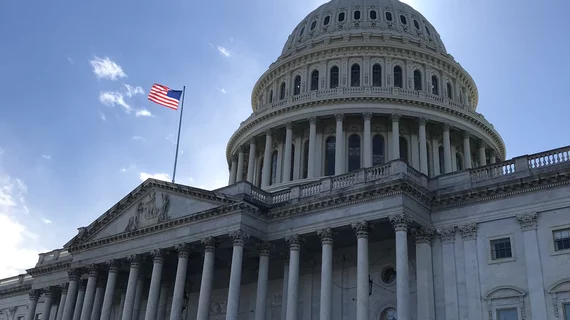Congress aims to crack down on ‘zombie drug’
The emergence of a non-opioid agent known as “tranq” or “zombie drug” has worried members of Congress and health officials over its potentially devastating impact.
Xylazine is a sedative intended for animals such as horses and cattle, but it is increasingly being found mixed with strong opioids such as fentanyl. The drug can cause drowsiness and amnesia, as well as slow breathing, heart rate and blood pressure. The veterinary tranquilizer has been linked to an increasing number of overdose deaths nationwide, according to the National Institute on Drug Abuse, part of the National Institutes of Health (NIH).
Xylazine also is not approved by the U.S. Food and Drug Administration for use in humans.
“While xylazine is not an opioid, it is dangerous because it can depress breathing, blood pressure, heart rate and body temperature to critical levels,” stated a letter from the Substance Abuse and Mental Health Services Administration (SAMHSA). “Additionally, people who inject drugs containing xylazine can develop severe skin wounds and patches of dead and rotting tissue that easily become infected and, if left untreated, may lead to amputation. These wounds can develop in areas of the body away from the injection site and may become life-threatening.”
These grotesque effects have raised alarm bells for Congress, prompting a handful of Senators to introduce a new bill, the Combating Illicit Xylazine Act, that would crack down on the drug, classifying it as Schedule III of the Controlled Substances Act.
The bill comes as xylazine use has proliferated while the U.S. is still left reeling from an ongoing opioid abuse epidemic. In 2022, 23% of seized fentanyl powder and 7% of pills contained xylazine, according to the Drug Enforcement Agency (DEA). The agency has now seized xylazine and fentanyl mixtures in 48 of 50 States.
“Xylazine is making the deadliest drug threat our country has ever faced, fentanyl, even deadlier,” DEA Administrator Anne Milgram said in a recent statement.
The new bill was introduced by U.S. Senators Catherine Cortez Masto (D-Nev.), Chuck Grassley (R-Iowa) and Maggie Hassan (D-N.H.).
“Drug traffickers are going to great lengths to pad their profits with dangerous drugs like tranq, and we need to empower law enforcement to crack down on its spread in our communities,” Sen. Masto said in a statement. “This bipartisan legislation will ensure the DEA and local law enforcement have the tools they need to get xylazine off our streets while protecting its important use as a veterinary tranquilizer.”
The bill takes several actions, including:
- Classifying its illicit use under Schedule III of the Controlled Substances Act.
- Enabling the DEA to track its manufacturing to ensure it is not diverted to the illicit market.
- Requiring a report on prevalence, risks and recommendations to best regulate illicit use of xylazine.
- Ensuring all salts and isomers of xylazine are covered when restricting its illicit use.
- Declaring xylazine an emerging drug threat.

